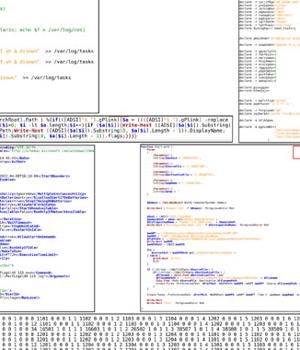Security News > 2022 > April > Russian Hackers Tried Attacking Ukraine's Power Grid with Industroyer2 Malware

"The attackers attempted to take down several infrastructure components of their target, namely: Electrical substations, Windows-operated computing systems, Linux-operated server equipment, [and] active network equipment," The State Service of Special Communications and Information Protection of Ukraine said in a statement.
Slovak cybersecurity firm ESET, which collaborated with CERT-UA to analyze the attack, said the attempted intrusion involved the use of ICS-capable malware and regular disk wipers, with the adversary unleashing an updated variant of the Industroyer malware, which was first deployed in a 2016 assault on Ukraine's power grid.
"The Sandworm attackers made an attempt to deploy the Industroyer2 malware against high-voltage electrical substations in Ukraine," ESET explained.
"In addition to Industroyer2, Sandworm used several destructive malware families including CaddyWiper, OrcShred, SoloShred, and AwfulShred."
The victim's power grid network is believed to have penetrated in two waves, the initial compromise occurring no later than February 2022, coinciding with the Russian invasion of Ukraine, and a follow-on infiltration in April that allowed the attackers to upload Industroyer2.
Alongside Industroyer2 and CaddyWiper, the targeted energy provider's network is also said to have been infected by a Linux worm called OrcShred, which is then used to spread two different wiper malware targeting Linux and Solaris systems - AwfulShred and SoloShred - and render the machines inoperable.
News URL
https://thehackernews.com/2022/04/russian-hackers-tried-attacking.html
Related news
- Chinese hackers target Russian govt with upgraded RAT malware (source)
- Hackers Abuse Russian Bulletproof Host Proton66 for Global Attacks and Malware Delivery (source)
- Russian Hackers Exploit Microsoft OAuth to Target Ukraine Allies via Signal and WhatsApp (source)
- Russian Hackers Using ClickFix Fake CAPTCHA to Deploy New LOSTKEYS Malware (source)
- North Korean Konni APT Targets Ukraine with Malware to track Russian Invasion Progress (source)
- Chinese FamousSparrow hackers deploy upgraded malware in attacks (source)
- Russian Hackers Exploit CVE-2025-26633 via MSC EvilTwin to Deploy SilentPrism and DarkWisp (source)
- North Korean Hackers Deploy BeaverTail Malware via 11 Malicious npm Packages (source)
- Russian hackers attack Western military mission using malicious drive (source)
- Chinese Hackers Target Linux Systems Using SNOWLIGHT Malware and VShell Tool (source)